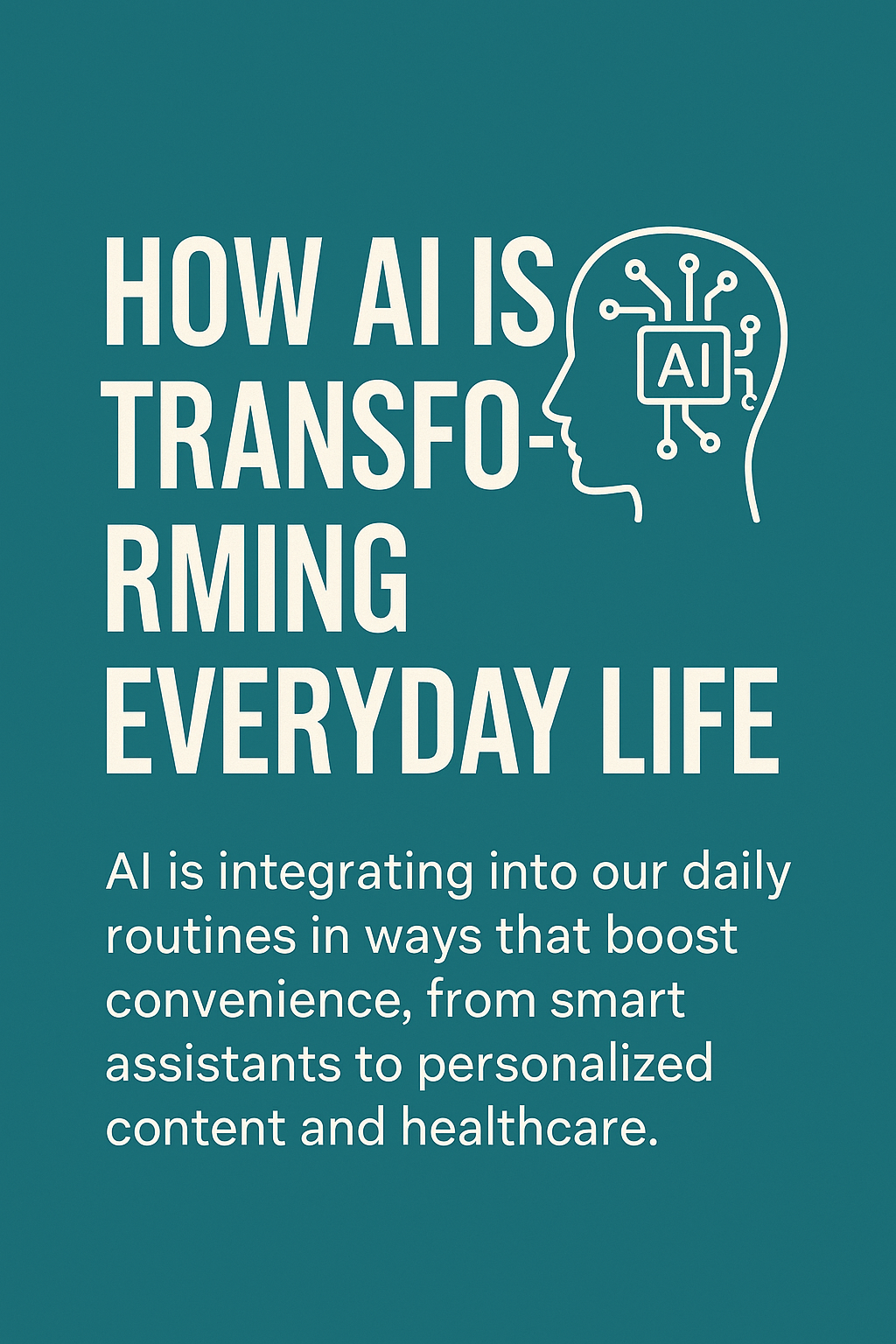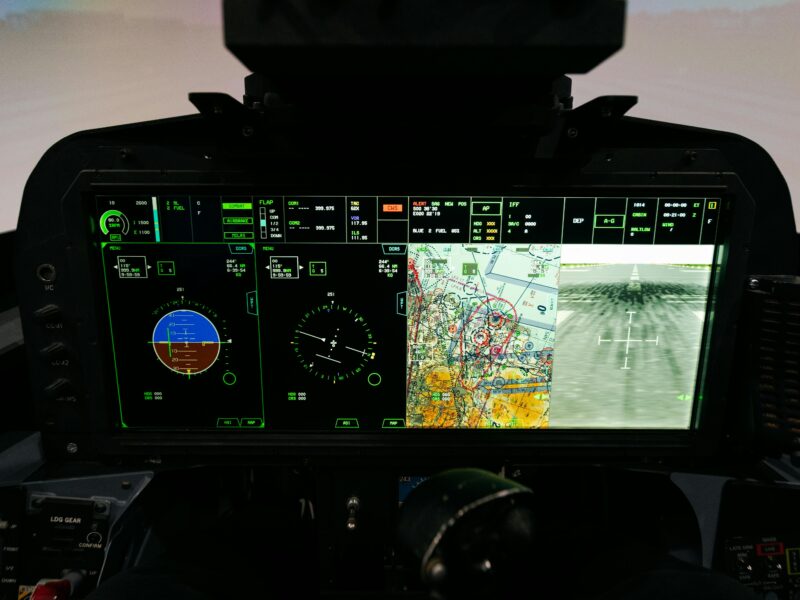Not too long ago, artificial intelligence was the stuff of science fiction — distant, futuristic, and often misunderstood. Fast forward to today, and AI is quietly becoming a part of our daily routines, sometimes without us even realizing it. From smart assistants to personalized content recommendations, artificial intelligence is weaving itself into the fabric of modern living. Let’s explore how AI is transforming everyday life across various aspects of our world.
1. Smarter Homes and Personal Assistants
One of the most visible faces of AI at home is the rise of smart assistants like Alexa, Google Assistant, and Siri. These virtual helpers respond to voice commands, manage calendars, control smart home devices, and even answer trivia questions. AI algorithms enable them to learn from our behavior, improving their responses and recommendations over time.
Smart thermostats like Nest or Ecobee use AI to learn your temperature preferences and adjust settings automatically, saving energy and money. Similarly, AI-enabled lighting and security systems are making homes more efficient, convenient, and secure.
2. Personalized Entertainment and Media
Ever wondered how Netflix seems to know exactly what you want to watch next? That’s AI at work. Streaming services, music apps like Spotify, and even YouTube rely on machine learning to study your habits and deliver tailored recommendations. The same goes for social media feeds — platforms use AI to decide what posts you see based on what you’ve liked, shared, or scrolled past.
These personalized experiences have redefined how we consume content. Whether it’s binge-watching a series or discovering a new favorite band, AI is curating entertainment just for you.
3. Smarter Shopping and E-Commerce
Online shopping has changed dramatically thanks to AI. From virtual try-on tools to chatbots that help with customer service, AI is enhancing the entire shopping journey. Algorithms analyze your browsing and buying history to suggest products you might like — often before you even think to search for them.
Retailers also use AI for inventory management, demand forecasting, and pricing optimization. Behind the scenes, it’s powering a more efficient and responsive supply chain.
4. Healthcare at Your Fingertips
AI is making strides in the healthcare industry, benefiting both doctors and patients. Virtual health assistants can offer medical advice, schedule appointments, or remind you to take your medication. Wearable devices track vital signs and fitness levels, using AI to detect anomalies and flag potential health concerns early.
On a larger scale, AI is helping doctors analyze medical data faster and more accurately. From reading X-rays to identifying disease patterns, AI tools are supporting clinical decisions and improving patient outcomes.
5. Safer and Smarter Transportation
Self-driving cars may still be in testing phases, but AI is already playing a big role in transportation. Navigation apps use AI to analyze traffic conditions in real-time and suggest the fastest routes. Ride-hailing platforms like Uber and Ola use it to match drivers with passengers and predict fares.
In logistics, AI optimizes delivery routes, predicts delays, and ensures packages arrive faster and more efficiently. Whether you’re behind the wheel or waiting for a package, AI is making travel and transport smoother.
6. AI at Work: Productivity and Automation
In the workplace, AI is enhancing productivity. Tools like Grammarly improve your writing, while project management platforms use AI to suggest task priorities or flag potential delays. In industries ranging from finance to manufacturing, AI is automating routine tasks, allowing humans to focus on more strategic work.
Even hiring is being transformed — AI can scan resumes, analyze video interviews, and shortlist candidates faster and more objectively.
7. Learning Made Easier
AI-powered education platforms offer personalized learning experiences based on a student’s strengths and weaknesses. Whether it’s a language learning app or a virtual tutor, AI adapts to how each person learns best. Teachers also benefit, with AI tools helping them grade assignments, track progress, and identify students who need extra help.
Remote learning, once a necessity, is now more interactive and intelligent thanks to AI-driven platforms.
Final Thoughts
artificial intelligence is no longer a future technology — it’s here, evolving quietly but rapidly in the background of our everyday lives. It’s not just about robots or futuristic gadgets; it’s about the small, smart changes that make life a bit easier, more convenient, and often, more connected.
As artificial intelligence continues to grow and improve, its influence will only become more widespread. The challenge for us is to harness its potential responsibly and ensure that it benefits everyone equally. One thing’s clear: the age of AI isn’t coming — it has already begun.



